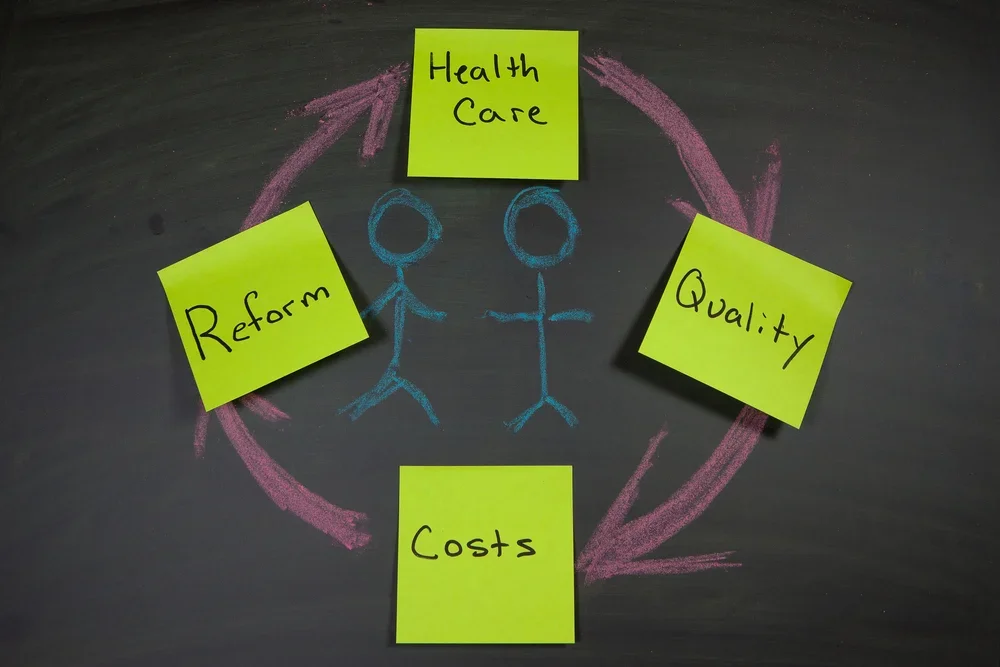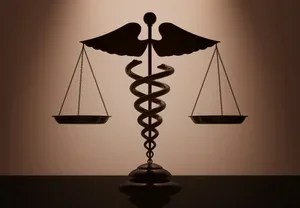
Resources:
Grow in knowledge.

7 Common Mistakes Physicians Make When Signing a Physician Employment Contract (and How to Avoid Them)
Smart physicians are not immune from making highly regrettable mistakes when it comes to employment contracts. And unlike in medicine, you don't get the option of trying a new treatment plan if the first one doesn't work. Physicians are educated, and intellectually sophisticated. This means that, even though you weren’t trained to read legal contracts in medical school, courts expect that you have read and fully understand the terms of the contracts you sign. That means that, both during and even after your employment, you're stuck with the contract you sign, so make sure you avoid these common pitfalls.

How to Get Paid for Remote Interprofessional Consultation between Physicians
Last evening, the Centers for Medicare & Medicaid Services (“CMS”) issued its proposed Medicare Physician Fee Schedule for CY 2021 (the “MPFS”). In addition to a number of important changes relating to the provision and reimbursement of telehealth, the proposed MPFS includes long-awaited clarifications around use of the Remote Patient Monitoring (“RPM”) codes established over the past three years

CMS introduces CPT Codes 99453, 99454, and 99457 to reimburse for Chronic Care Remote Patient Monitoring
The final 2019 Medicare Physician Fee Schedule (the “Rule”), released on November 1st, creates three new codes in the category of Chronic Care Remote Physiologic Monitoring (“CCRPM”) for (1) initial set-up and patient education, (2) initial device supply, and (3) monitoring data and interacting with patients or caregivers.

How to get Reimbursed for Virtual Check-ins under HCPCS Code G2012
In its Final Rule for the 2019 Medicare Physician Fee Schedule released on Friday, CMS introduced a new code, HCPCS G2012, allowing physicians and other qualified healthcare professionals (“QHCPs”) to be reimbursed for “virtual check-ins” with patients who aren’t sure whether or not their symptoms warrant an in-office visit. Learn more about virtual check-ins and how they can be used by practices.

HCPCS Code G2010 reimburses for Remote Evaluation of Patient-Submitted Images and Video
The final 2019 Medicare Physician Fee Schedule, released by CMS on November 1, 2018, includes a new code that physicians may use to bill for remote evaluation of images to determine whether or not an in-person office visit is necessary. Learn more about HCPCS Code G2010 and how it can be used in medical practices.

Should I Self-Disclose a Stark or AntiKickback Violation?
On September 27, 2018, the Department of Justice (“DOJ”) for the first time announced its own “road map” guiding voluntary self-disclosures and cooperation with government investigations of fraud and abuse in the healthcare industry. By encouraging self-disclosure, the government is incentivizing healthcare entities to come forward early with reports of violations in the hope of negotiating reasonable settlements, avoiding exclusion from Federal healthcare programs, and reducing the severe civil and criminal penalties that would otherwise be imposed for such violations.

When Do I Need a Healthcare Attorney? Responding to an Investigation by the Virginia Department of Health Professions
“Do I really need a healthcare attorney? The Board is simply asking me to answer some questions and provide some documentation. Of course, a Board complaint is a big deal, but this part seems harmless/easy enough. I will just respond and tell them what happened, right?” The reality is that an effective response is not as straightforward as it may seem. Hiring a healthcare attorney to assist in the preparation of your response to a complaint investigation can improve your chances of resolving the complaint at the investigation stage, incidentally saving you money in the long run.

Practice Agreement Requirements for Virginia Nurse Practitioners
In Virginia (and in many other states), NPs who do not have an autonomous practice must practice under the direct supervision of a physician as part of a patient care team, pursuant to what is called a “Practice Agreement,” or, “Collaborative Practice Agreement.” A Practice Agreement is an agreement between an NP and the NP’s supervising physician that describes the relationship between the parties, including the procedures to be followed and acts to be performed by the NP in the course of providing care to patients.

The New California Privacy Law: Why healthcare tech companies in every state need to pay attention!
Many digital health technology companies have customers from multiple, or even all, states accessing their software and services. If these health tech companies have California customers, then starting in January 2020, they may need to abide by the California Consumer Privacy Act.

Top Seven Tips to Prepare for a Healthcare Security Compliance Audit
By building compliance processes into your internal structure, audits can be completed faster and can bring to light information that is beneficial for both your customers and employees. Here are seven tips to prepare for a healthcare compliance audit.

Can Nurse Practitioners Run Their Own Practices in Virginia?
In April 2018, Governor Ralph Northam signed House Bill 793, which will allow Virginia nurse practitioners (NPs) with the equivalent of five years of full-time practice with a collaborating physician to be certified to practice independently. What does this mean for NPs in Virginia? Practically speaking, if a nurse practitioner meets the qualifications and makes the appropriate filings with the Board of Nursing, he or she can open up an independent practice to provide care in their community. This change aligns Virginia law with more than twenty other states across the country in adopting full practice authority and is expected to expand access to affordable primary care to thousands of Virginians.

PAUBOX GUEST BLOG: The GDPR and Pseudonymization vs. Encryption
On May 25, 2018, European law officially enforced the General Data Protection Regulation (GDPR). The GDPR was created to protect the personal data of EU citizens. This article examines two GDPR-compliant encryption methods in this article: standard encryption and pseudonymization.

Medicare Data Sharing under the CMS Qualified Entity Program
The Qualified Entity Program allows CMS-certified Qualified Entities to obtain and use Medicare claims data to conduct non-public analyses and provide or sell combined data/analyses, consistent with certain program requirements.

Do I really need a Healthcare Lawyer?
Healthcare has now surpassed nuclear power and financial services as the most highly regulated industry in the U.S. - and for good reason. The health, safety, and privacy of individual patients and the public at large is at stake.
For better or for worse, there exists a complex web of local, state, and federal laws and regulations that govern the businesses of healthcare providers and healthcare companies - from patient safety and privacy protections, to corporate transactions and contractual relationships. Navigating this complicated landscape requires a deep understanding of the risks and opportunities inherent in the healthcare industry—namely, it requires an experienced healthcare attorney.

What do I need to know about GDPR?
Beginning on May 25, 2018, HIPAA won’t be the only healthcare data security standard with which U.S. companies have to comply. Medical practices, digital healthcare companies, and vendors (e.g., electronic health records companies, medical billing companies, and cloud services companies) that do business in the healthcare sector and collect data from European citizens will be required to comply with the new EU General Data Protection Regulation (the “GDPR”). A recent Reuters article called the implementation of these regulations “the biggest overhaul of online privacy since the birth of the internet.”
